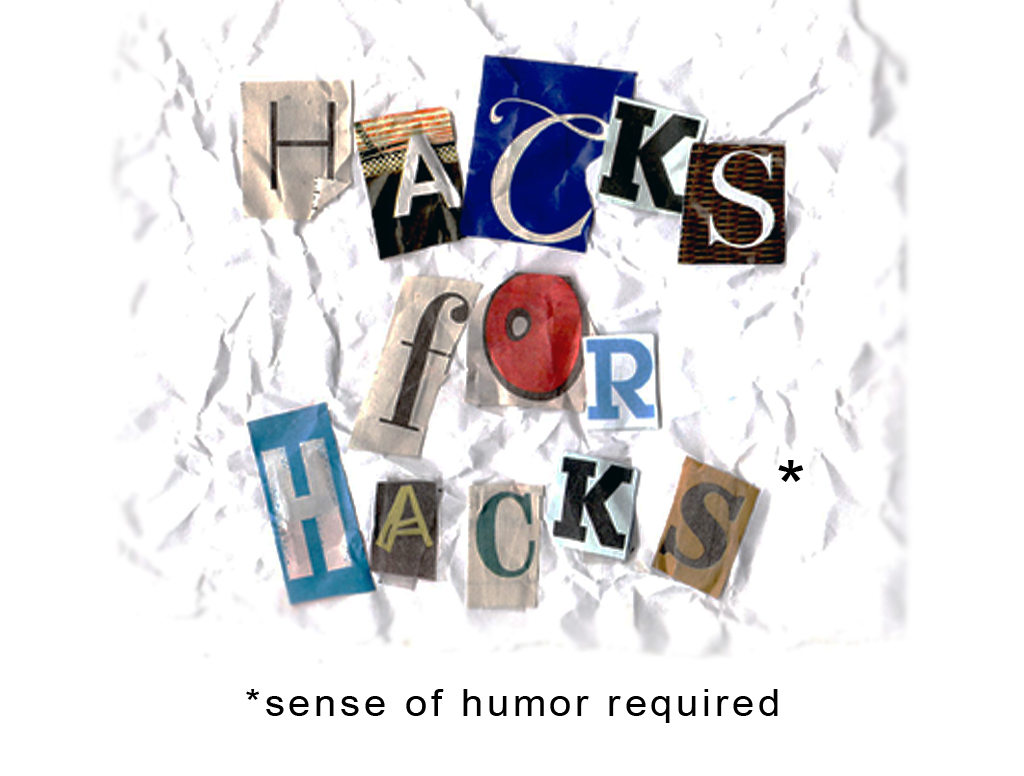Applying to MFA Programs
By Bill Ferris | September 19, 2015 |

Warning: Hacks for Hacks tips may have harmful side effects on your writing career, and should not be used by minors, adults, writers, poets, scribes, scriveners, journalists, or anybody.
Earning an MFA in creative writing comes with benefits that will last a lifetime. You’ll be qualified to teach college fiction-writing classes, much like buying a lottery ticket makes you qualified to win a million dollars. You’ll learn the craft of refining your craft. You’ll develop a network of peers you can seek out for advice and obsessively compare yourself to until you one day die in a fit of envy and alcohol poisoning. The more prestigious programs have career benefits as well; the day you graduate from the Iowa Writers Workshop, your unpublished short story collection will magically appear in hardcover on the shelves of Powell’s Books. Success, fame, and fortune are the easy part. The hard part is getting in. Here’s how you can.
[pullquote]Less selective institutions might have an acceptance rate as high as 20 percent. Those are lousy odds, but if numbers were your thing, you wouldn’t be applying to MFA programs.[/pullquote]
Step 1: Research
To find the program that’s the best fit, you’ve got to do your homework on prospective schools.
- Look up their acceptance rate, which at some schools is so small that they can only be seen by microscope. Less selective institutions might have an acceptance rate as high as 20 percent, meaning your odds of failure are only four out of five! Those are lousy odds, but if numbers were your thing, you wouldn’t be applying to MFA programs.
- Do they have famous faculty or alumni? This is crucial for name-dropping purposes at cocktail parties.
- How much financial aid is available. Are there fellowships? Teaching assistantships? There are always student loans; as your MFA pays dividends the rest of your career, so too will you write checks to Nelnet for the rest of your miserable life.
- Map each campus’ proxmity to ponds, woods, mountains, or other writerly thinking spots for when you need to retreat from your three-year-long writing retreat.
- Create a detailed spreadsheet of local bars and coffee shops, including house blends, tap lists, Wi-Fi passwords, drink specials, jukebox content, and the condition of their respective foosball and shuffleboard tables.
Step 2: Assemble your Application
[pullquote]Statement of purpose: “My purpose is to get into your MFA program, duh.” They’ll appreciate a straight-shooter like you.[/pullquote]
Your application will probably include the following elements:
- Letters of recommendation. Writers find it incredibly flattering to be asked to write letters of recommendation, so don’t be shy. If you know any published writers, approach them first. Be courteous, yet direct. “Dear Mr. R. R .Martin: Hi, I’m that guy who writes witty replies to all your tweets. I’d have a lot less free time if I got into graduate school, if you catch my drift.” If you don’t know any published authors, maybe ask a writing-advice columnist whose work you enjoy but who is secretly insecure and needs constant validation from readers to stave off the feeling that all his work is naught but meaningless bleating into the void. Yes, that’d be an especially good option.
- Statement of purpose. This is a trick. Schools weed out pretentious jerkwads by baiting them into rambling about “artistic vision,” or confessing that an MFA program provides a legit-sounding excuse to break up with their boyfriend or girlfriend. Your statement: “My purpose is to get into your MFA program, duh.” They’ll appreciate a straight-shooter like you.
- Portfolio. Most schools ask for up to thirty pages of original fiction. They’re trying to be nice and spare you the expense of excess postage. If you’ve got the financial means, or a non-maxed credit card, go ahead and ship your whole novel (unless you’ve written a series, in which case only send three or four of the books, you don’t want to overwhelm them). On the other end of the spectrum, are you a witty raconteur on Twitter dot com? Think how many tweets you can fit into thirty pages! Each one is a story in miniature, and with so many to choose from, the readers are bound to like two or three of them.
- Include an SASE. So they can send you bad news more easily.
Step 3: Applicate
It’s time to submit. Stick all that stuff into a manila envelope and send it on its way. Nothing to do now but wait for all those acceptance letters to roll in. This is the most nerve-wracking part of the process. Most applicants deal with it in the following ways:
- Lament that you declined to pay extra for delivery confirmation.
- Reread your portfolio pieces and spot two grammatical errors.
- Track your failure in real time via MFA blogs! Some websites allow applicants from all over the country to post when they got an acceptance or rejection letter. Remember how, in The Hunger Games, every night they fired a cannon shot for each child that had been brutally murdered that day? That was a trick question! If you’re reading and writing stuff like The Hunger Games, you’re not cut out for an MFA, you poseur.
Step 4: The Verdict
Prepare yourself to receive one of the following three letters:
- You’ve been accepted! You can’t wait to get to campus to work with these brilliant literary minds.
- You’ve been waitlisted. That’s okay, the faculty is just so-so, and it was a fall-back school anyway.
- You’ve been rejected. Better luck next year. Don’t feel bad, you just didn’t read this article as closely as you should have, nor did you get your hopes high enough. There’s always next year, when you’ll apply to a creative writing PhD program.
Have you gotten into an MFA program? Well la-di-da! The comments section is a great place to share your advice. Or to, you know, ask any famous authors who might be writing this column to write you a recommendation letter.
[coffee]










One MFA program has an official motto taken from the Sean Connery movie Finding Forester.
‘Yes!, Yes!, You’re the man now dawg!’
Which program is that? That’s really cool. The only way it could be better is if it was Updog.
I like your sense of humor, but I’m guessing there’s a downside to an MFA program?
I have just one correction for what’s otherwise a post packed tight as bratwurst with truth:
“You’ll develop a network of peers you can seek out for advice….” I assume you mean reliable advice. The problem with that is, if you’re a good writer, you will pose a threat to others. The only way to deal with this is to offer critiques that, hopefully, will derail your talent. Comments on margins, spacing, toner darkness, or invitations to binge drink or start the day with weed. If you’re a lousy writer, people will be very encouraging. The point will be to convince you to stick pointlessly with the program, instead of mastering drywall installation. That way, your unreadable prose or poetry will continue to provide a contrast with their own acceptable if mediocre work.
I don’t have an MFA, but I attended the writing workshops offered every summer at the University of Iowa in Iowa City. Known for its MFA program, the benefits of taking classes under excellent teachers and guest writers like Elizabeth Strout–this is worth the time and little investment. It helped me advance in my skills. A suggestion for others worth considering.
Your post title kept me from reading this all day – until there was nothing left on the internet.
Honestly, if you want to attract readers, you have to stop scaring them off with the title! Not everyone will move on to the author, and realize you’re – not? – completely serious.
I’m too old; I couldn’t qualify for the coffee house part.
And spend my time surrounded by imaginary people, so there is no one interested in any name I might be able to drop.
Are YOU getting one?
This post made me giggle! A lot! Thanks! :D
I’m old, so I would not get that much benefit from such a program, but I did consider it . . . until a friend of mine got a master in some sort of English literature related stuff (I’m using technical terms here; bear with me).
The thing is, I used to like his writing, but over the course of a couple of years it changed to the point I can barely read a few hundred words or so before setting aside (another friend, a relative of my friend, is of the same opinion). He just graduated and I was unsure if I should feel happy or sad for him.
So now I am reluctant to not only getting a formal education in anything relating to writing, but I also worry about my upcoming workshop.
I like my writing, and if getting other people to like it means me not being able to stand reading my own stuff . . . well, then, maybe I am just not cut out to be a writer.
As usual, I enjoy your humor. Guess that means I’m so clever I don’t need a MFA!
After getting a BA degree in Nonprofit Mgmt (because I want to run my own nonprofit creative writing center for youth), I thought about getting an MFA. For, like, 2 seconds. Until I realized that I would be in even more school-loan debt than I am right now. LOL Yeah, no thanks.